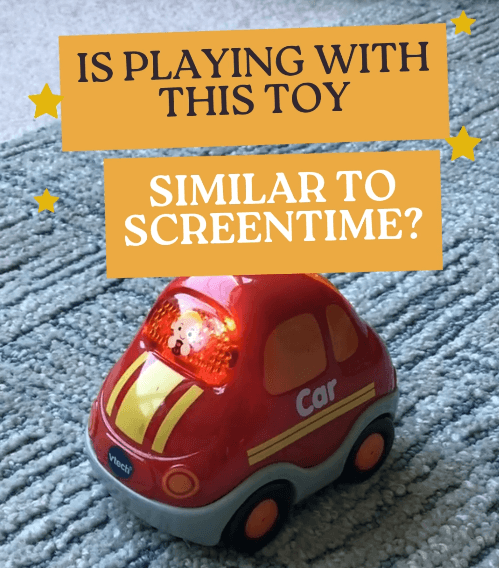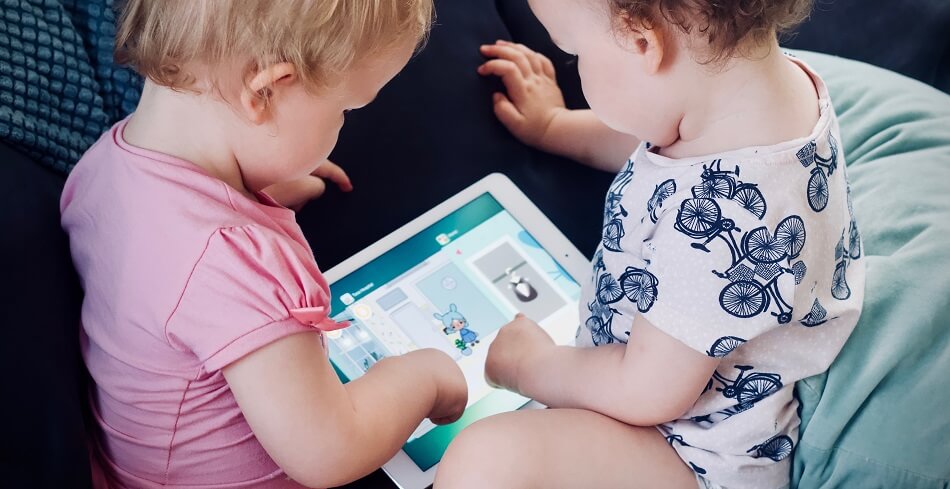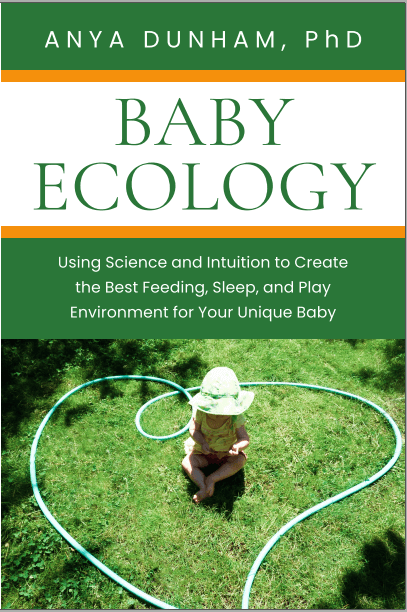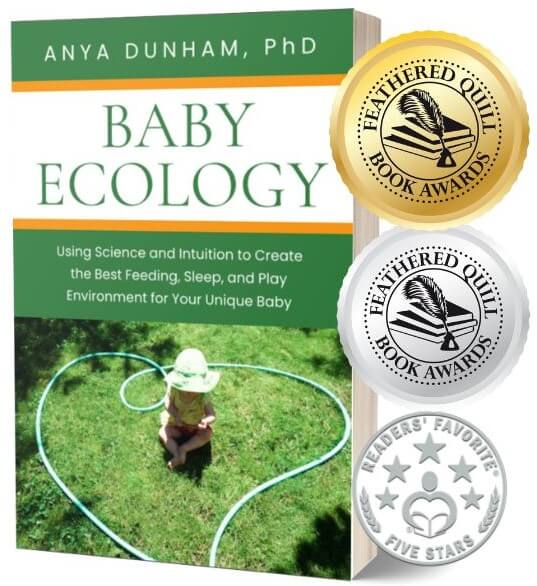Baby Ecology book is here! Learn more
Baby Ecology book is here!
- Home
- Baby activities
- Screen time for baby
- Light Up Baby Toy
Does playing with a light up baby toy count as screen time?
by Anya Dunham, PhD
No, a light up baby toy or a musical toy isn't the same as screen time - but a couple of underlying principles are similar.

Have you noticed how captivated babies appear to be when they spot a light up toy or a push-the-button musical toy? I remember my 9-months-old daughter seeing a Baby Einstein activity table for the first time and getting completely enthralled, pushing the buttons over and over. Does playing with toys like this count as screen time? And since screen time isn't recommended for young children, should we limit light up toys, singing toys, and the like?
A light up baby toy isn't the same as TV, phone, or tablet, but the reasons it captivates your baby are similar
The short answer is, no, they aren't the same, but a couple of underlying principles are similar:
📺 Similar to screens, a light up toy or a push-the-button musical toy captivates your baby through orienting response: a reflex that fixes her attention on new sights and sounds. It’s a good thing in and out of itself as it forms the basis for learning. However, when activated too much (such as during screen time), it can be overstimulating and, in large amounts, disrupt the development of attention from orienting response toward executive attention we otherwise know as focus.1-3
📺 Similar to objects on screen, this toy doesn’t really help your baby learn. If she’s over 8-9 months old, she’s already figured out quite a few patterns about the physical world around her: that objects that are dropped fall down; that to roll, something needs to be rolled; how solid objects behave. The fact that the light-up car doesn’t doesn’t behave in a way most objects do and doesn’t fit into the categories she’s formed in her head may be fascinating to her. But unlike a simpler toy, it doesn’t teach her anything about sounds, trajectories, forces, or any cause-and-effect.
🚗 Bottom line
Light-up toys like these aren’t harmful, but, unlike toy making companies would like you to believe, they aren’t really “STEM” or “learning” toys either. If it’s a special gift from a loved family member or friend or a toy your baby really enjoys, I would:
- First and foremost, make sure the toy's battery compartment is fully secure as accidental button battery ingestion is very dangerous.
- Offer your baby other simple toys or household play objects that do follow the rules of physics (like balls, bells, blocks, rings, and stacking cups) - and make plenty of time for unstructured, free play.
Hope you found this quick exploration helpful!
References
References
1. Anderson DR, Pempek TA (2005) Television and very young children. American Behavioral Scientist 48(5): 505-522
2. Posner MI, Rothbart MK, Voelker P (2016) Developing brain networks of attention. Current Opinion in Pediatrics 28(6): 720-724
3. Christakis DA et al (2004) Early television exposure and subsequent attentional problems in children. Pediatrics 113(4): 708-713
Using hundreds of scientific studies, Baby Ecology connects the dots to help you create the best environment for sleep, feeding, care, and play for your baby.
Warmly,
Anya





